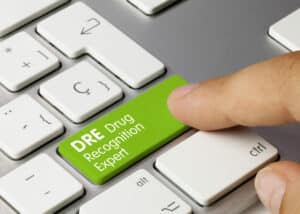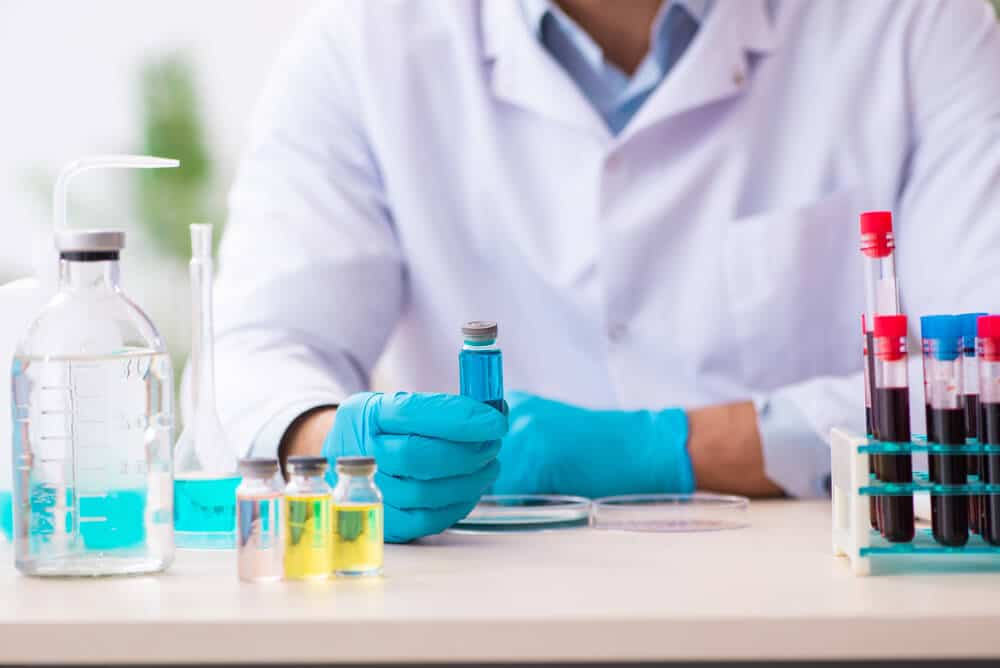Data Gathered by DRE Officers in DWI Cases
New Jersey has Continued Efforts to Quash the Number of Drivers Driving Under the Influence of Alcohol and Drugs, Often Using Drug Recognition Experts when Making these Arrests.
 Using Drug Recognition Experts (known as DREs), law enforcement is better equipped to identify motorists who are driving under the influence, and prosecutors may use this evidence to prove the case against a driver charged with DUI. You should call an attorney immediately if you have been charged with DWI in New Jersey, as the state comes down hard on drugged and drunk drivers.
Using Drug Recognition Experts (known as DREs), law enforcement is better equipped to identify motorists who are driving under the influence, and prosecutors may use this evidence to prove the case against a driver charged with DUI. You should call an attorney immediately if you have been charged with DWI in New Jersey, as the state comes down hard on drugged and drunk drivers.
Our attorneys at The Bronzino Law Firm know how stressful it can be to have charges pressed against you that could seriously affect your life. Having your license suspended, plus a host of financial penalties and other requirements can mean unpleasant changes in your daily life. Jail, fines, and driving school are also a possibility. Let our top-notch DWI attorneys build a rock-solid defense for you in Toms River, Jackson, Stafford, Brick, Point Pleasant, Seaside Heights, Middletown, Sea Bright, and other Ocean and Monmouth County towns where we represent clients charged with DUI. Call us at (732) 812-3102 or reach us online for more information about how we can help you today. Our firm is pleased to assist you and consultations are free.
What Does a Drug Recognition Expert Do in New Jersey?
Drug Recognition Experts’ primary objective is identifying individuals who drive under the influence (DUI) by recognizing indications of drug use when field tests are applied. As opposed to conventional methods, where the possibility exists that some cases go undetected if the driver doesn’t display overt symptoms, such as slurring their words or stumbling, the DRE’s objective, the scientific approach, makes a real difference. It gives them an opportunity to make more accurate decisions and make the streets safer.
Frequently, DREs are called to testify in court as to their observations of the driver, what tests were applied, and their results. They provide useful evidence for the prosecution and are trusted as expert witnesses.
Drug Recognition Experts play an additional role in law enforcement by providing training to the police force and even becoming involved in promoting legislation regarding driving-while-impaired policies.
Understanding the Role of a Drug Recognition Expert
The primary function of a Drug Recognition Expert (DRE) is to detect and identify individuals who are driving under the influence of drugs. DREs are trained to recognize the signs and symptoms of drug use and to conduct a standardized evaluation process to determine if an individual is impaired and, if so, what category of drugs might be causing the impairment.
DREs play a crucial role in addressing the issue of drugged driving, as they provide a more systematic and scientific approach to detecting and documenting drug-impaired driving compared to traditional methods. They use their training and expertise to gather evidence and make accurate and impartial determinations of drug impairment, which can be used in court to support the prosecution of drugged drivers.
In addition to their role in law enforcement, DREs also play an important role in educating other law enforcement officers and the public about the dangers of drugged driving and the signs of drug use. They may also assist in developing and implementing drug-impaired driving laws and policies and provide expert testimony in court.
What Types of Drugs Are They Trained to Recognize?
Drug Recognition Experts (DREs) are trained to recognize the symptoms and effects of various categories of drugs, including Central Nervous System (CNS) depressants, such as alcohol, benzodiazepines, barbiturates, and GHB. CNS stimulants such as cocaine, methamphetamine, and amphetamines, as well as hallucinogens such as LSD and PCP are also included. Specialists can identify dissociative anesthetics such as ketamine and narcotic analgesics such as heroin, morphine, and fentanyl. Cannabis-related drugs such as marijuana and hashish can be detected as well as anabolic steroids.
Signs and Symptoms DRE’s Use to Identify Drugs
DREs are trained to recognize the signs and symptoms of drug use and determine if a driver is impaired based on the evaluation process results. This includes thoroughly evaluating the individual’s physical and behavioral indicators and the results of standardized field sobriety tests. The ultimate goal of a DRE evaluation is to provide reliable, objective evidence of drug impairment to support the arrest and prosecution of drugged drivers.
The GREs apply a 12-point test to the driver to determine the presence of drugs. An analysis of biological cues and behaviors is used to determine the existence or severity of the impairment and its possible derivative. An eye examination, looking to find bloodshot eyes, pupil size, and reaction to light, is the first step. Then the driver’s ability to perform tasks such as walking a straight line or following a moving object (such as a pen) with the eyes is done. A breath alcohol test is done after the arresting officer has interviewed the driver to provide more evidence in the case. The DRE will look for muscle rigidity or flaccidity, injection sites (also known as track marks), and the individual’s speech patterns, specifically slurring, mumbling, or other signs of impairment.
The driver’s vital signs, such as blood pressure, pulse rate, and body temperature, will also be measured. A dark room examination is a test done to measure the reaction of the driver’s pupils to light while in a dark room. The GRE will use a pupillometer to measure the size of the pupils when exposed to varying degrees of light. Narcotics can constrict the pupils, whereas hallucinogens cause the pupils to dilate. The driver’s behavior and mood are observed, as are balance, coordination, memory, response to stimuli, and attention. Finally, the driver’s statement is taken, and a toxicology screening is performed to determine if any substances would impair the driver.
Where and How Are DRE Evaluations Held?
 Assessments for identifying potential drug impaired drivers mainly happen at police stations/jails after arresting suspects on suspicion charges related to impaired driving; they involve several tests aimed at finding traceable drugs in victims’ bodies conducted by DREs. These examinations incorporate analysis focusing on observing eye movements as well as behavioral cues such as posture variations such as standing balanced on one foot while being distracted.
Assessments for identifying potential drug impaired drivers mainly happen at police stations/jails after arresting suspects on suspicion charges related to impaired driving; they involve several tests aimed at finding traceable drugs in victims’ bodies conducted by DREs. These examinations incorporate analysis focusing on observing eye movements as well as behavioral cues such as posture variations such as standing balanced on one foot while being distracted.
In addition to these tests described above DREs also review personal medical histories alongside past clinical diagnoses tied to substance abuse concerns. After taking samples from blood or urine, they are subsequently tested for drug and/or alcohol content. These test results help determine the level of impairment caused by drugs along with identifying the specific drugs responsible for any detected impairments.
Find an Experienced Defense Attorney for Drug Recognition Expert-Backed DUI Charges in Brick, New Jersey
Our DWI lawyers will review all of the evidence in your case, including the police report, breathalyzer results, and any other relevant documents. This will help us to determine if there were any problems with how the evidence was obtained or if any defenses can be raised. As experienced DUI defense attorneys with over 10 years of experience, we are fully ready to defend your case during pre-trial motions and trial, providing the most well-supported arguments on your behalf. We will ensure your rights are protected at all times and represent you in court, arguing on your behalf, cross-examining witnesses, and presenting evidence to support your case. Above all, we will work to give you the best possible outcome. If you are facing a DUI charge in Manchester, Howell, Wall, Lacey, Mantoloking, Sea Girt, Berkeley, Lavallette, or another municipality in the Jersey Shore area, contact Bronzino Law Firm to speak with an attorney about your arrest. Contact us at (732) 812-3102.







